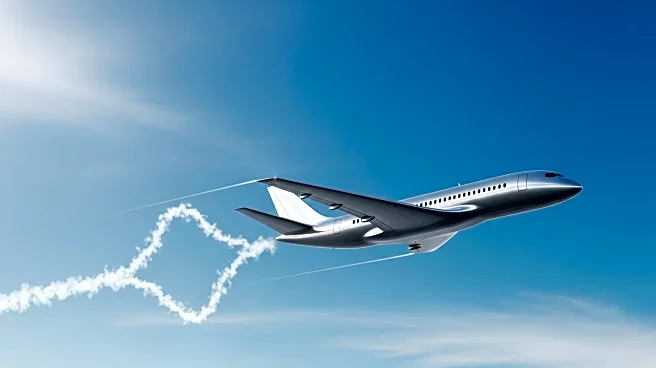What's Happening?
The aviation industry is intensifying efforts to address the climate impact of contrails, which are non-CO2 emissions formed by aircraft. These contrails can develop into cirrus clouds, affecting the planet's temperature. Recent studies and trials, including those by Eurocontrol's Maastricht Upper Area Control Centre, have explored contrail mitigation through flight planning and tactical vertical clearances. The industry is also researching the impact of sustainable aviation fuels (SAF) on contrail formation, with early indications suggesting a reduction in ice-crystal formation.
Why It's Important?
Contrails contribute significantly to aviation's climate impact, and mitigating them could reduce the industry's environmental footprint. As regulators in Europe begin to require airlines to report non-CO2 emissions, understanding and addressing contrails becomes crucial. Successful mitigation strategies could lead to substantial environmental benefits, aligning with global sustainability goals. The industry's focus on SAF and advanced technologies highlights a commitment to reducing aviation's climate impact beyond CO2 emissions.
What's Next?
Continued research and trials are expected to refine contrail mitigation strategies, potentially leading to regulatory changes and industry-wide adoption. Collaboration between airlines, air traffic management, and technology providers will be key in developing effective solutions. As understanding of contrail impacts improves, the industry may see increased investment in technologies that minimize non-CO2 emissions, contributing to broader climate goals.









